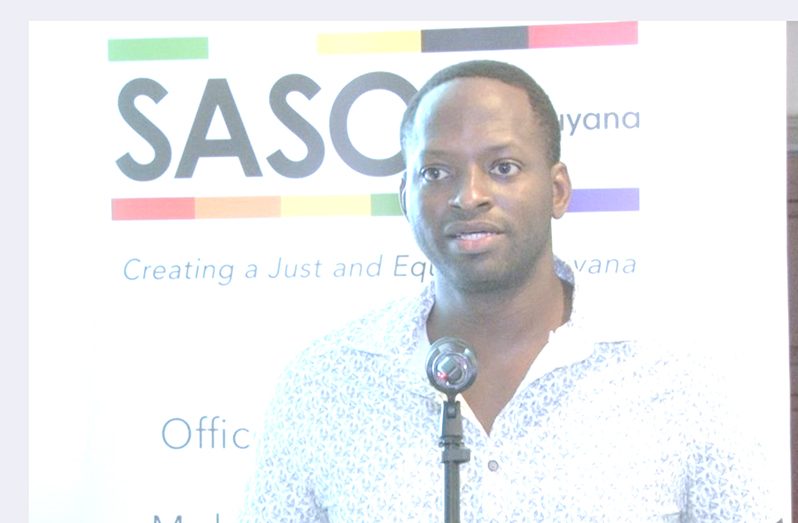By Richard Bhainie
THE Society Against Sexual Orientation Discrimination (SASOD) is conducting an assessment to evaluate the impact COVID-19 had on HIV services provided to the Lesbian, Gay, Bisexual, Transgender, Queer (LBGTQ+) population during the pandemic.
During an interview with this publication, Managing Director of SASOD, Joel Simpson, explained that the assessment will address the experiences of the LGBTQ+ community in relation to accessing HIV services, the practices they utilised and their shortcomings during the pandemic.
Simpson explained that in response to the COVID-19 pandemic, the National AIDS Programme Secretariat (NAPS) employed measures to ensure the services they provide were not hampered, such as multi-month dispensation of drugs.
Due to the challenges that came with the pandemic, the initiative by NAPS was seen as a step in the right direction by SASOD and the LGBTQ+ community-related positive feedback; this would have prompted the assessment.
“We are sure that the pandemic came with a lot challenges, but I always say with every dark cloud there is a silver lining, so we thought to ourselves let’s do a study to look to see if there are any other good practices that emerged during the pandemic,” Simpson explained.
He highlighted that there is need for urgent efforts to ensure the continuity of HIV prevention and treatment services in order to avert excess HIV-related deaths and to prevent an increase in HIV cases during the COVID-19 pandemic.
The assessment will focus on the full spectrum of HIV services relating to prevention, treatment, care and support.“On the prevention side, for the key population who are HIV negative, we’re interviewing them about how they experience HIV services during the pandemic; if people went for testing; what was the experience like; did you get condoms and lube; was the quality of service the same, etcetra,” Simpson explained.
He added: “With respect to treatment, care and support, we’re interviewing MSM and Trans about their experiences accessing services during this time; whether they got medication; was there any problem with supplies; any service they needed that you couldn’t get”.
From the data gathered, SASOD will compare the quality of services persons received before and after the pandemic to assess if there are any differences.
Based on the report, SASOD will advocate for the prioritisation of shoring up supply chains and ensuring that people already on treatment are able to stay on treatment, including by adopting or re-inforcing policies such as multi-month dispensing of anti-retroviral therapy in order to reduce requirements to access health-care facilities for routine maintenance, thereby reducing the burden on overwhelmed health-care systems.
In a recent study conducted in the Caribbean by the University of the West Indies (UWI) and SASOD Guyana, with funding from the United Nations Development Program (UNDP), persons recorded significant challenges in accessing health services in Guyana during the pandemic.
SASOD acquired funding from Frontline AIDS, an international organisation, based in London, United Kingdom, to conduct the assessment, which commenced on November 1, 2020. The assessment will be conducted in the four most populous regions; Regions 3, 4, 5, and 6, with the key population being gay men and other men who have sex with men, transgender people and sex workers, all with an HIV prevalence of five per cent and over. The final report will be concluded by December 31, 2020 and will be launched in January, 2021.



.jpg)








